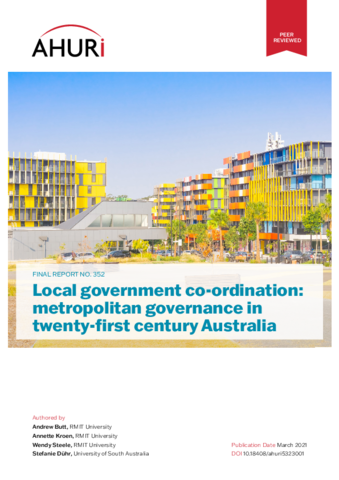This research examines the role of local government engagement and coordination in 21st century Australian metropolitan governance. It focusses on the role of local governments in cooperation with one another, the state governments and other actors at the metropolitan scale.
Urban development and growth in Australia does not adhere to local or state government administrative boundaries, particularly in relation to complex issues such as climate change, urban habitat, transport infrastructure, water and waste management and energy transitions.
he interconnected nature and increasing complexity of Australian metropolitan governance raises critical questions about the existing political fragmentation and multiplicity of boundaries, functions and government services that often replicate and compete with one another. This has reignited calls for metropolitan scale governance. Whether governance structures take the form of a metropolitan government, a coalition or a network will need to be negotiated in every city region and metropolitan area, as will the way in which boundaries are drawn.
For the successful establishment of metropolitan government and governance structures it is necessary that they are accepted by citizens and other political actors (legitimacy) and are capable of making relevant decisions that can be implemented (authority and autonomy). Such structures will require cooperation with existing administrative levels and entities, coordination, accountability and some form of legitimacy through citizen influence (i.e. elections).


